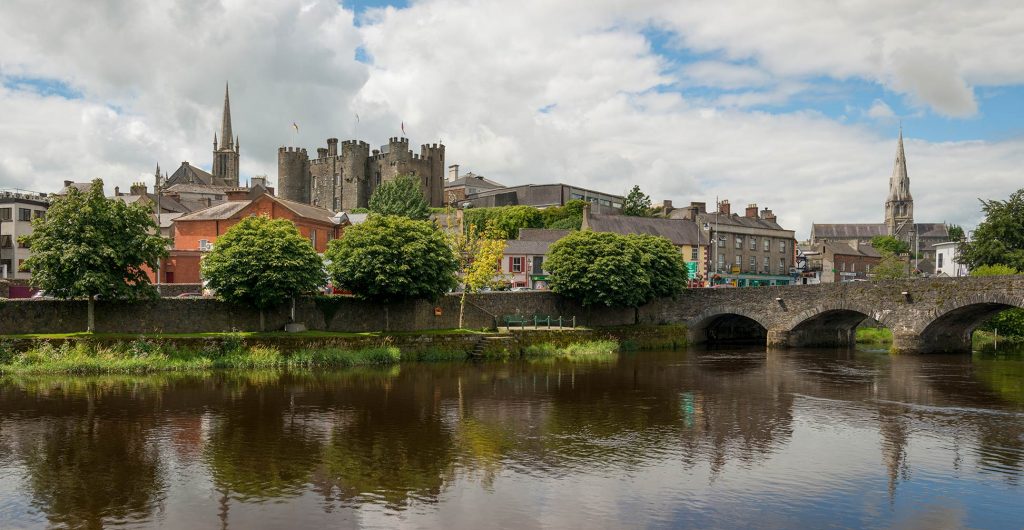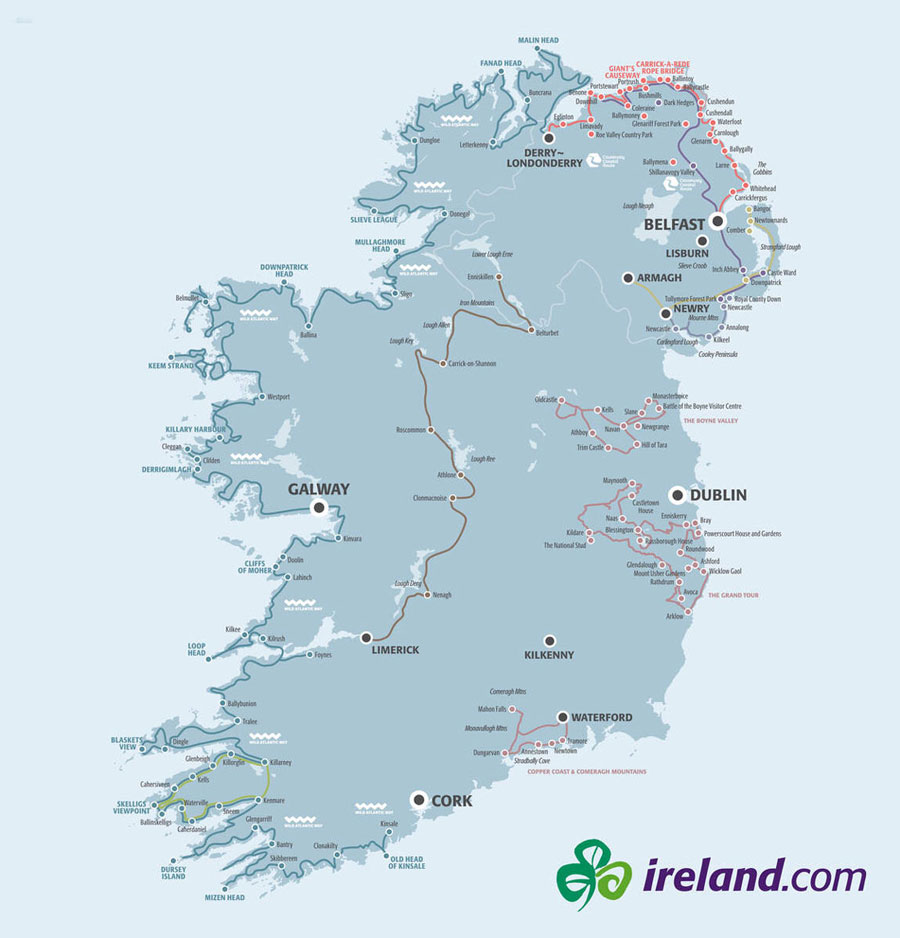
Five points about Ireland
- Ireland is a constitutional republic with a parliamentary system of government. Chief of state is the president; head of government is the Taoiseach (Prime Minister). The cabinet is nominated by the prime minister, who is appointed by the president. The President has mainly ceremonial powers.
- The republic of Ireland is mainly catholic, while Northern Ireland is mostly divided between Catholics (41%) and Protestants (41,5%).
- The Republic of Ireland has a population of almost 5 million people (in 2020), the capital and largest city is Dublin. Ireland is called the Emerald Island. And it’s really easy to understand why! The whole island is covered in intense green vegetation, mainly grassland.
- Ireland is found to be the fifth highest-ranking country in the world for higher education.
- Ireland has two official languages, English and Irish. While Irish is considered the first and national language, only about one-third of the population can speak it, on the other hand, English is spoken by virtually everyone. Irish people are very communicative. It’s perfectly normal to enter a pub, and people start talking to you.
Location and Geography about Ireland

About four-fifths of the area of Ireland is the national territory of the Republic of Ireland, the remaining one-fifth in the northeast of the island belongs to Northern Ireland, which is part of the United Kingdom.
Ireland is located in the North Atlantic, West of Great Britain. Together (and with all the smaller ones), they form the British Isles. Politically the Island is divided into the republic of Ireland in the South, occupying 5/6 of the Island, Northern Ireland, which covers the rest.
Economy of Ireland
The economy of Ireland is based on high-tech services, life sciences, financial services, and agribusiness. Major sectors of the country’s economy are aircraft leasing, the alcoholic beverage industry, engineering, and energy generation (natural gas), the pharmaceutical industry, agriculture, and tourism. Ireland’s economy is heavily dependent on exports, with the USA and the United Kingdom being important trading partners. Irish beef and dairy products are also essential agricultural export products.
Living Conditions and Cost of Living in Ireland
The cost of living in Ireland is an important factor to consider when studying abroad. However, the cost of living in Ireland is heavily influenced by a variety of factors suchas lifestyle and housing quality, extracurricular opportunities, study material prices, and so on. The cost of living in Ireland is expectedto be 2,700 euros per month without including any study fees. However, except for Dublin, there are many places where the cost of living in Ireland for international students is low.
Education System
Ireland’s education is primary, secondary and higher (often known as “third-level” or tertiary) education. Education is compulsory for all children in Ireland from the ages of six to sixteen or until students have completed three years of second-level education and including one sitting of the Junior Certificate examination. Primary education commonly starts at four to five years old. Children typically enrol in a Junior Infant class at age four or five depending on parental wishes.
Some school’s enrolment policies have age four by a specific date minimum age requirements. Transition year sometimes called fourth year – depending on the school, this may be compulsory, optional or unavailable. Senior Cycle is a 2-year program to prepare students for the leaving certificate examinations. Voluntary, vocational, comprehensive and grind schools are all secondary options. Higher Education in Ireland is provided mainly by Universities, Institutes of Technology and Colleges of Education. In addition, a number of other third level institutions provide specialist education in fields such as art and design, medicine, business studies, rural development, theology, music and law.
Information Specific to International Students
Ireland is a great and affordable destination for international students looking to further their education. There are a variety of universities and colleges that offer degree programs in a wide range of disciplines. International students must meet certain criteria to be eligible to study in Ireland. They must have a valid passport, have proof of sufficient funds to cover tuition and living expenses, and have a valid residence permit. Additionally, international students must have a valid health insurance policy and must be able to demonstrate their proficiency in the English language.
